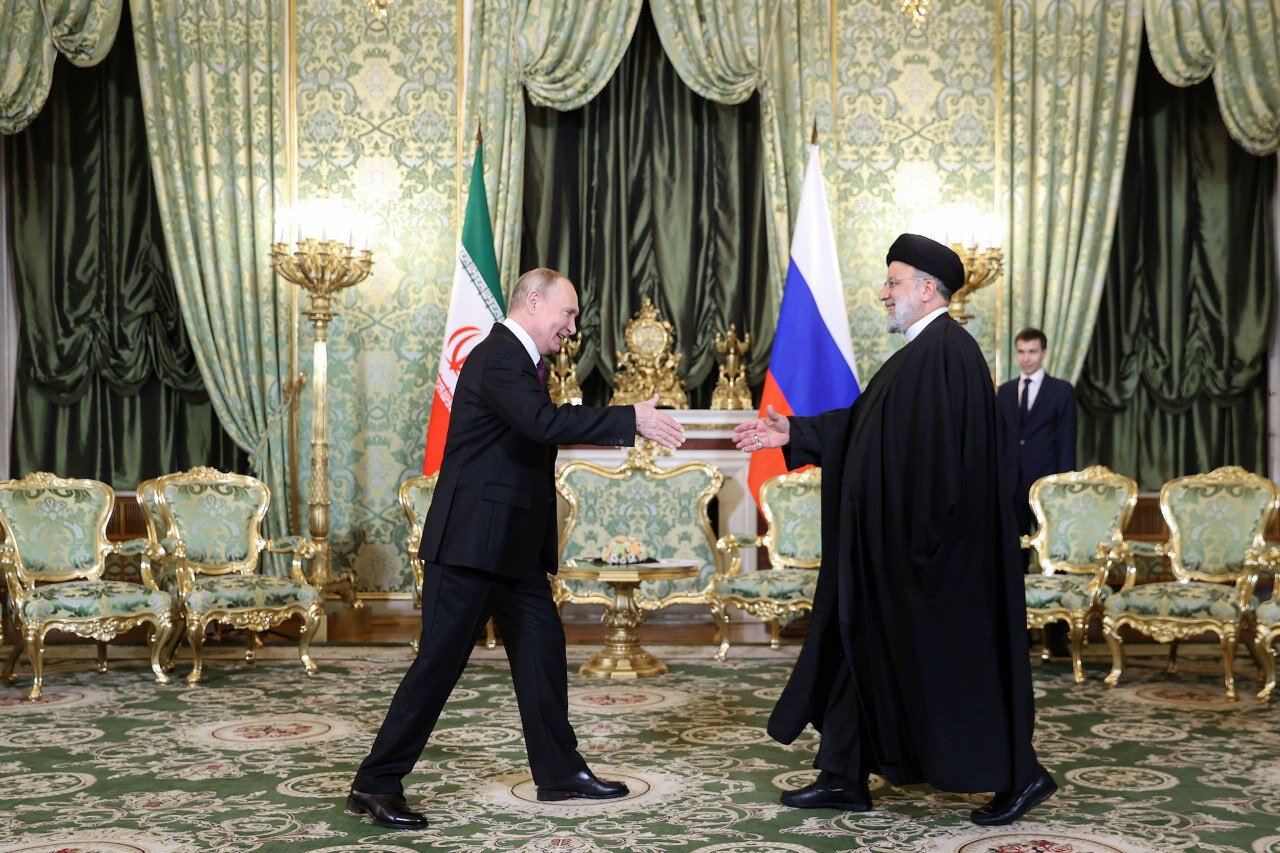Tehran, Moscow cement cooperation
Iran-Russia ties significantly boosted under Raisi

TEHRAN – In the dynamic world of global diplomacy, Iran and Russia are weaving a tale of growing camaraderie. Recent years have seen a surge in their relationship, reminiscent of historical alliances being reignited.
Despite the challenges, Iran and Russia have discovered common ground—a fertile soil for mutual interests to flourish. Diplomatic overtures between Tehran and Moscow have not gone unnoticed, especially in the face of punitive Western sanctions on Moscow since the start of the Ukraine conflict in February 2022. Both nations have stood firm in their commitment to advancing economic and trade connections, with a noteworthy defense partnership drawing international attention and caution particularly from Washington about its unprecedented expansion. Putin highlighted that Russia and Iran "attach paramount importance to strengthening their economic and trade ties," underscoring the depth of their bilateral relations.
President Ebrahim Raisi has played a pivotal role in fortifying diplomatic ties, fostering collaboration through various international forums.
Shanghai Cooperation Organization (SCO)
Under Raisi's leadership, Iran joined the Shanghai Cooperation Organization (SCO) with Russian help. The SCO serves as a platform for addressing regional security challenges, aligning with Russia on both regional and global issues.
BRICS collaboration
Since assuming office in 2021, President Ebrahim Raisi has focused on strengthening ties with Iran's neighbors and influential Asian nations. In August 2023, Iran, along with Argentina, Egypt, Ethiopia, Saudi Arabia, and the United Arab Emirates, received an invitation to join the BRICS bloc of emerging economies. This development coincided with U.S. and European efforts to isolate Tehran due to concerns about its advancing nuclear program.
President Raisi's government recognizes the strategic importance of aligning with influential players in the global economy, solidifying Iran's position in the evolving geopolitical landscape.
The 3+3 format
Furthermore, the 3+3 format, bringing together nations from the southern Caucasus and neighboring countries, has significantly strengthened ties between Iran and Russia. This diplomatic framework, aligned with Iran's objectives of addressing regional issues, enhances understanding and promotes collaborative solutions.
Acquisition of Sukhoi 35 fighter jets
President Raisi's administration, with a keen eye on bolstering Iran's defense capabilities, has turned to Russia for the acquisition of advanced Sukhoi Su-35 fighter jets. This move not only symbolized a pragmatic approach to national security but also served as a testament to the evolving dynamics between Tehran and Moscow. The Sukhoi Su-35 deal stood as a tangible expression of mutual trust and strategic alignment, echoing the shared interests that underpin the broader diplomatic engagements.
Raisi, with a measured approach, has expanded the scope of engagement beyond traditional diplomatic avenues, embracing the strategic dimension of defense cooperation.
The International North-South Transport Corridor (INSTC)
Lastly, the Iran-Russia deal on the International North-South Transport Corridor (INSTC) has been pivotal in deepening relations. This agreement has not only enhanced connectivity and economic cooperation but has also fostered a closer strategic partnership. By jointly investing in and promoting the INSTC, Iran and Russia demonstrated their commitment to regional economic integration and mutual growth, further strengthening their diplomatic ties.
